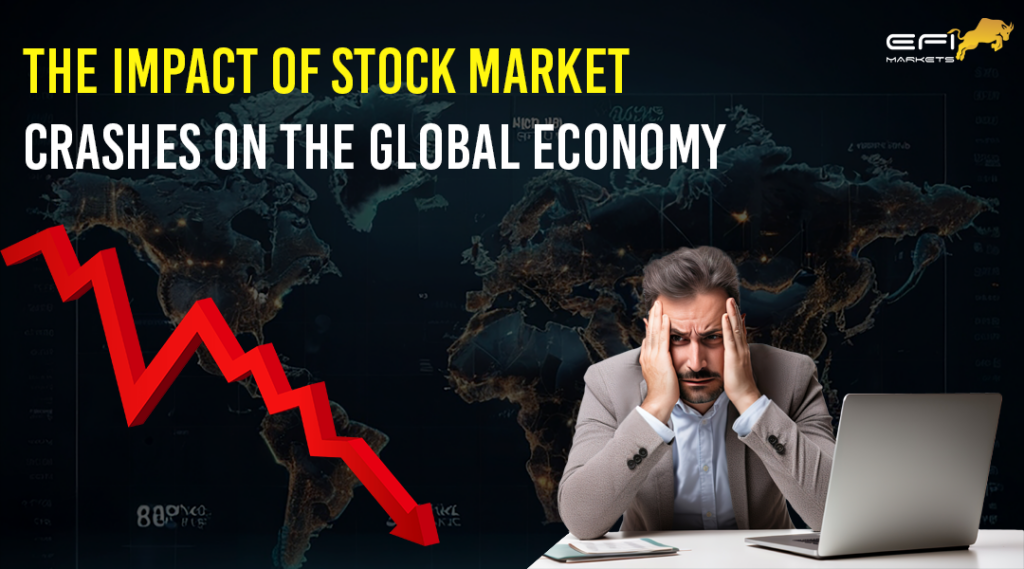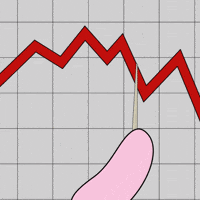
Introduction
The financial world, much like any other realm, is susceptible to upheaval and transformation. Among the most significant upheavals are stock market crashes—sudden, severe declines in stock prices that send ripples through economies and affect lives worldwide. Understanding these crashes, their causes, and their consequences is paramount for investors, policymakers, and the general public.Setting the Scene: Historical Context of Stock Market Crashes
Stock market crashes are not new phenomena. They have punctuated economic history, each leaving its mark on the financial landscape. From the Great Depression in 1929 to the COVID-19 pandemic crash in 2020, these events have been both harbingers of economic downturns and catalysts for regulatory changes. The historical context of these crashes helps us grasp their profound implications and recurring patterns.Why Understanding Stock Market Crashes Matters
Grasping the mechanics and impacts of stock market crashes is crucial for several reasons. It aids investors in navigating turbulent markets, guides policymakers in crafting effective responses, and informs the public about potential economic threats. Awareness and understanding can mitigate panic and foster more resilient financial behaviors and policies.Understanding Stock Market Crashes

What Constitutes a Stock Market Crash?
A stock market crash is typically defined as a rapid and often unanticipated decline in stock prices, usually by a double-digit percentage within days. This dramatic downturn is fueled by widespread panic selling and loss of investor confidence, often exacerbated by underlying economic weaknesses or external shocks.Key Characteristics of Major Stock Market Crashes
Major stock market crashes share several characteristics: precipitous drops in stock values, heightened market volatility, significant economic fallout, and widespread investor panic. These crashes often reveal systemic vulnerabilities and trigger swift governmental and institutional interventions.Historical Overview of Significant Stock Market Crashes

The Great Depression: Lessons from the 1929 Crash
The 1929 stock market crash is perhaps the most infamous, marking the onset of the Great Depression. It highlighted the dangers of rampant speculation, lack of financial regulation, and the interconnectedness of global economies. The crash wiped out fortunes, led to bank failures, and plunged millions into unemployment.Black Monday 1987: A Day that Shook the World
On October 19, 1987, stock markets around the globe experienced unprecedented drops, with the Dow Jones Industrial Average plummeting by 22.6% in a single day. This crash underscored the vulnerabilities of increasingly interconnected and computerized trading systems, leading to significant regulatory changes.The Dot-Com Bubble Burst: 2000-2002 Crash
The early 2000s saw the burst of the dot-com bubble, where speculative investments in internet-based companies led to an inflated market. When the bubble burst, it resulted in massive losses, bankruptcies, and a prolonged market downturn, emphasizing the perils of speculative fervor and overvaluation.The 2008 Financial Crisis: Causes and Consequences
The 2008 financial crisis, triggered by the collapse of the housing market and risky financial products, resulted in a global recession. This crash highlighted the dangers of excessive leverage, inadequate risk management, and the interdependence of global financial institutions. The aftermath saw sweeping regulatory reforms aimed at stabilizing financial systems.COVID-19 Pandemic Crash: A Modern Case Study
The onset of the COVID-19 pandemic in early 2020 led to a rapid, severe stock market crash as economies worldwide shut down. This crash was unique in its cause—a global health crisis—and its immediate effects on both supply and demand. Governments responded with unprecedented fiscal and monetary measures to stabilize economies.Immediate Effects of Stock Market Crashes

Investor Panic and Market Volatility
Stock market crashes induce investor panic, leading to frenzied selling and extreme market volatility. This reaction can cause stocks to drop further, creating a feedback loop of declining confidence and escalating losses.The Role of Media in Amplifying Fear
Media coverage plays a crucial role during stock market crashes. Sensational headlines and continuous updates can amplify fear and uncertainty, influencing investor behavior and market outcomes.Impact on Global Financial Markets

Ripple Effects on International Stock Exchanges
Crashes in major markets often lead to similar declines in international exchanges, reflecting the interconnectedness of the global financial system. A significant drop in the U.S. market, for example, can trigger downturns in Europe, Asia, and beyond.Currency Fluctuations and Exchange Rates
Stock market crashes can lead to volatile currency fluctuations as investors seek safe havens. This volatility impacts exchange rates, affecting international trade and investment.Economic Recession and Unemployment

How Stock Market Crashes Lead to Economic Downturns
Stock market crashes can precipitate economic recessions by eroding wealth, reducing consumer and business spending, and tightening credit conditions. This chain reaction often leads to widespread economic contraction.Unemployment Rates: A Direct Consequence
Rising unemployment is a common consequence of economic downturns following stock market crashes. Businesses cut back on spending and hiring, leading to job losses and increased economic hardship for many households.Government and Central Bank Responses

Bailouts and Stimulus Packages: Do They Work?
Governments often respond to stock market crashes with bailouts and stimulus packages aimed at stabilizing the economy. While these measures can provide short-term relief and restore confidence, their long-term effectiveness varies and can lead to increased public debt.Monetary Policy Adjustments: Lowering Interest Rates
Central banks typically lower interest rates during crises to encourage borrowing and investment. This monetary easing aims to stimulate economic activity, although its effectiveness depends on broader economic conditions and market confidence.Impact on Consumer Confidence and Spending

The Psychological Effect on Consumers
Stock market crashes can severely impact consumer confidence. As people see their investments shrink, their optimism about the economy and their financial future diminishes, leading to reduced spending.Changes in Spending Habits and Savings Rates
Following a crash, consumers often become more cautious, increasing their savings rates and cutting back on discretionary spending. This shift can slow economic recovery as reduced consumption impacts businesses and overall economic growth.Long-Term Economic Consequences

Structural Changes in the Economy
Significant stock market crashes can lead to structural changes in economies. Industries may shift, new regulations may emerge, and economic priorities can evolve in response to lessons learned from the crisis.Shifts in Global Economic Power
Crashes can alter the balance of global economic power, as countries and regions differently affected by the downturn adjust their economic strategies and recover at varying paces.Regulatory and Policy Changes Post-Crash

Financial Regulations Introduced After Crashes
In response to crashes, governments often implement new financial regulations aimed at preventing future crises. These can include stricter oversight of financial institutions, enhanced consumer protections, and measures to increase market transparency.The Role of International Organizations
International organizations, such as the IMF and World Bank, play crucial roles in stabilizing economies post-crash. They provide financial assistance, policy advice, and facilitate international cooperation to address systemic risks.Stock Market Crashes and Income Inequality
The Widening Wealth Gap
Stock market crashes often exacerbate income inequality. While the wealthy may recover through diversified investments, lower-income individuals, with fewer assets and job security, face prolonged economic hardship.Social and Political Ramifications
Rising inequality following crashes can lead to social unrest and political instability. Governments may face increased pressure to implement reforms addressing economic disparities and providing greater support to those most affected.Lessons Learned from Past Crashes
What Investors Can Learn
Investors can glean valuable lessons from past crashes, such as the importance of diversification, the dangers of speculative bubbles, and the need for a long-term investment perspective.How Governments and Institutions Can Prepare
Governments and institutions can better prepare for future crashes by strengthening financial regulations, enhancing crisis response mechanisms, and fostering greater economic resilience through prudent fiscal and monetary policies.Conclusion
Stock market crashes have far-reaching and multifaceted impacts, from immediate market volatility to long-term economic changes. By understanding these events, learning from past experiences, and preparing for future crises, we can build a more resilient global economy, better equipped to withstand the shocks of financial turmoil.Case Studies of Individual Countries
/2024/02/15/1708004089662.gif)
